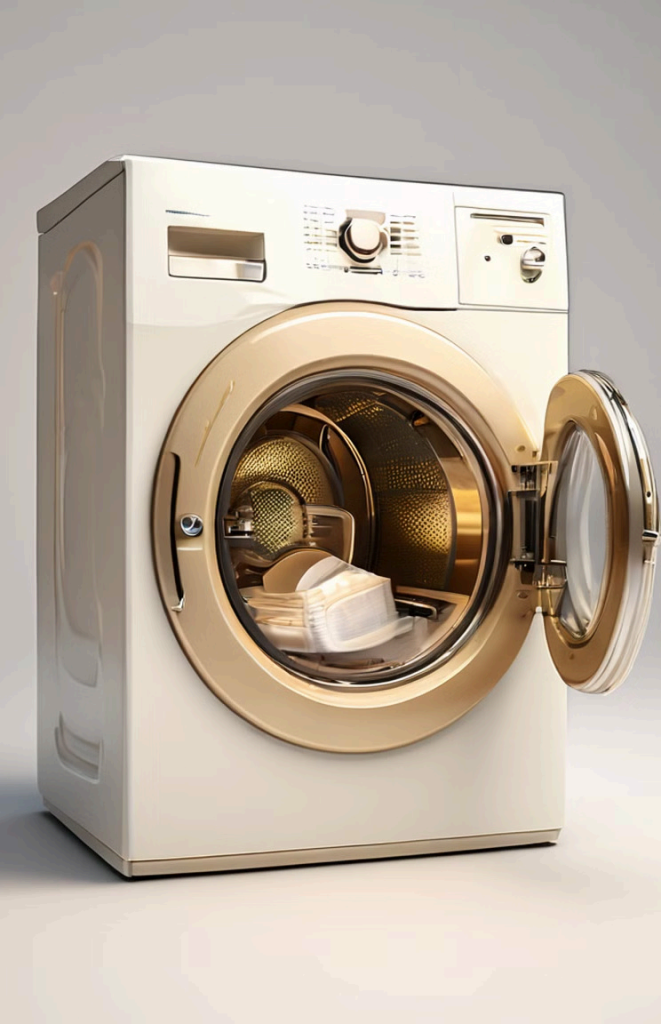Laundry Hacks, Tips, and Routines
Laundry is a chore everyone faces, but with some strategies, you can make it easier and more efficient. This presentation explores effective laundry hacks,
tips, and routine-building techniques to help you navigate the world of laundry like a pro.

Sort Your Clothes Efficiently
Color
Separate whites from colors to prevent dye transfer. Dark colors can bleed onto light fabrics. Consider a separate pile for
delicate items.
Fabric Type
Group similar materials together. Cotton, synthetics, and delicate fabrics require different wash cycles and temperatures.
Level of Soiling
Divide clothes into heavily soiled, lightly soiled, and clean items. This helps determine wash cycles and pretreating needs.

Pretreat Stains Effectively
Identify the Stain
Different stains require specific treatments. Consult a stain
removal chart for guidance.
Act Quickly
Fresh stains are easier to remove. Blot the stain
immediately with a clean cloth or paper towel.
Use the Right Product
A stain remover, pre-soak, or even baking soda can work
wonders. Always test the product on an inconspicuous area
first.
Apply and Wait
Apply the stain remover directly to the stain and let it sit for
a few minutes before washing.

Choose the Right Detergent
Concentrated Detergent
Concentrated detergents are
more potent and less bulky,
reducing storage space and
environmental impact.
Powdered Detergent
Powdered detergents are cost-
effective and versatile, suitable for various fabrics and wash
cycles.
Liquid Detergent
Liquid detergents are convenient
and often come in scents and
formulas for specific fabric types, like delicates.
Pods
Laundry pods are pre-measured
and dissolve easily in water,
offering convenience, but can
sometimes be more expensive!
Eco-Friendly Options

Seventh Generation
Seventh Generation’s Free & Clear
Concentrated Laundry Detergent is a popular choice for its plant-based formulas. It’s free from dyes and fragrances, making it
gentle on both the environment and sensitive skin.

Earth Breeze
Earth Breeze offers eco-friendly laundry detergent sheets that are lightweight, fully biodegradable, and effective in removing stains. They are a convenient and sustainable solution.

Blueland
Blueland’s Laundry Essentials Kit features tablet-form detergents designed to reduce waste. These tablets are free from harmful
dyes and bleaches, providing strong cleaning performance while being gentle on the planet.

Maximize Washing Machine Capacity
Avoid Overloading
Overloading your machine can lead to inefficient washing and
damage to your clothes.
Fill It Up Wisely
Aim for a full load, but avoid cramming clothes in. Leave space
for the clothes to move freely.
Use a Laundry Basket
Gather clothes in a laundry basket before loading the machine. This allows you to assess the load before putting it in.
Fold and Store Clothes Properly

Folding Techniques
Master different folding techniques for shirts, pants, and towels. Youtube has tons of techniques!

Ironing
Iron clothes immediately after washing to prevent wrinkles. Consider a steamer for delicate fabrics. Create a iron board corner.

Storage
Organize clothes in drawers or closets by category and color for easy access. Buy extra clothes hanging, boxes for storage for extra clothes.
Maintain Your Washing Machine
Clean Regularly
Wipe down the exterior and interior
of the machine to prevent mold and
mildew buildup.
Inspect and Repair
Address any leaks, noises, or other
issues promptly. Consult a repair
service if needed.
Clean the Drain
Remove lint and debris from the drain
hose and filter to prevent clogs.
Use a Washing Machine Cleaner
Run a cleaning cycle with a washing
machine cleaner to remove residue
and buildup.

Dry Cleaning: When and Why



Laundry Schedules and Routines
Weekday Routine
Wash clothes on weekdays and
fold and put them away
immediately.
Weekend Laundry
Designate a day for tackling
larger loads, like bedding or
towels.
Quick Wash
Use a quick wash cycle for
lightly soiled clothes to save
time and energy.
Consistency
Stick to a regular schedule to
prevent clothes from piling up
and becoming a chore.
Eco-Friendly Laundry Practices

Line Drying
Hang clothes outside to dry naturally,
saving energy and reducing reliance on
dryers.

Short Cycles
Use a shorter wash cycle for lightly soiled
items to conserve water and energy.

Cold Water Wash
Wash clothes in cold water whenever
possible, reducing energy consumption and
preserving fabric.
